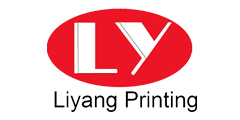The abstract expounds the green approach of paper packaging from three aspects. It is pointed out that only packaging that has no pollution to the environment during the entire life cycle of the packaging product is a green packaging. Only by increasing the recycling of waste paper, efforts to develop more green packaging products can solve the problem of environmental pollution caused by packaging waste.
Keywords paper packaging green approach
1 Concept analysis of green packaging
Green packaging is a new concept for people to overcome the crisis of deteriorating environment, scarcity of resources and increasing energy shortage. As people's understanding of the "environment and packaging" continues to deepen, the understanding of the concept of green packaging is also expanding. Initially, many countries are enforcing standards and decrees to force the recycling of packaging waste. Specific methods include landfill, incineration, recycling, recycling, and composting. Subsequently, Europe first proposed the "3R, 1D" principle of packaging that is compatible with the environment, namely: Reduce (reduction of packaging); Reuse (recycling); Recycle (recycling); Degradable (degradation of packaging materials) corrupt). In the late 1990s, the "LCA" theory was put forward again. LCA (Life Cycle Analysis) is the life cycle analysis method. The definition of packaging life cycle analysis method can be described as: according to certain target requirements (reducing environmental pollution or saving natural resources), from the entire life cycle of packaging products, namely the extraction of raw materials, production and processing, transportation, sales, use, disposal and recycling The entire process of final processing is a method of quantitative analysis and analysis. According to China's national standard GB4122-83, it can be seen that packaging refers to the technical measures imposed on the product in order to achieve a specific function. China adopted the metaphor of environmental protection in 1993 and proposed the name of green packaging. Although there is no unified definition at present, according to the above analysis, green packaging can be defined as: moderate packaging that can be reused, reused, or degraded, and that does not cause harm to the environment and the human body throughout the product life cycle.
2 Environmental protection of paper packaging
During the “Ninth Five-Year Plan” period in China, paper packaging accounted for 28% of the total output value of the packaging industry, ranking first, reaching 12.3 million tons. At present, there are packaging papers, pulp molded products, edible paper products, corrugated boxes, and honeycomb paperboards in the packaging of paper products. The environmental protection of paper packaging includes: non-toxic, odorless, breathable, not only polluting the inner packaging, but also maintaining the respiration of the inner packaged goods, achieving better storage conditions: easy recycling, natural decomposition, no environmental pollution: production Raw materials come from renewable wood and plant stems. According to the life cycle theory, the green performance of paper packaging is evaluated from the whole process of the product life cycle. The following problems are also involved in the environmental protection of paper packaging in the production process and recycling: (1) Environmental pollution in the production process: energy consumption High, high water consumption, and due to the role of chemicals to discharge black waste, pollution of rivers and farmland, but also emit a foul odor, causing air pollution. (2) Solvent-based adhesives are used in the production of cartons and cartons, and some even use toxic and harmful silicates. (3) The recycling rate of discarded paper packages is low, and the recycling of resources is poor.
3 Green packaging paper should take measures
After the paper packaging is discarded, it is a kind of packaging that is easy to recycle and does not pollute the environment. However, it is not a complete green packaging, because from the fundamental point of environmental protection, paper packaging also needs to be made in the following aspects: :
3.1 Pollution of papermaking industry in China and the countermeasures to be taken
Papermaking raw materials are generally wood pulp, straw pulp, wheat straw pulp or mixed pulp. Among them, the waste liquid produced by the straw pulp and wheat straw pulp during the pulping process has relatively serious environmental pollution, and the wood pulp is relatively light. China's paper industry has been mainly using wheat straw fiber as the main raw material for pulping. Each year it discharges 5 billion tons of toxic waste liquid, accounting for 1/6 of the national wastewater discharge, of which organic pollutants account for about 1/4. In addition, waste gas and solid waste are also produced. China is a country with a severe shortage of timber resources. It is imperative to vigorously develop paper packaging and actively develop raw material resources. To this end, the following four aspects should be taken:
3.1.1 Accelerate technological transformation. And should actively introduce advanced foreign technology. Reducing or closing the inability to establish a small papermaking company that recycles and remediates pollution. Develop large-scale papermaking companies.
3.1.2 Implement the integrated development strategy of forestry, pulp and paper. Gradually realize the basement of wood for large papermaking companies. During the "10th Five-Year Plan" period, a major focus in the development of paper packaging in China is the production of high-strength, low-weight, multi-functional packaging papers and high-grade paper boxes. This needs to be achieved with wood pulp as a raw material. This is due to the fact that wood has the characteristics of intensive management, large supply, stable sources, convenient transportation, large economic collection radius, and suitability for large-scale production. It has high fiber concentration, good shape, and is suitable for manufacturing high quality and various requirements. The characteristics of paper and cardboard. The lack of forest resources in China, the solution is to vigorously develop artificial papermaking forest base. The implementation of forestry and paper integration will not only ensure the stable and continuous supply of paper fiber raw materials, but also reduce the cost of paper products. Improve its competitiveness in the international market.
3.1.3 Expand the use of imported waste paper, make full use of the residues left by forest processing, and strengthen the recycling of domestic waste paper, and establish a domestic market system for waste paper recycling and supply. Increasing the domestic waste paper recovery rate will be the main way to resolve waste paper sources. To this end, it is necessary to form a network system for the recycling of waste paper by the whole society, and at the same time increase the intensity of propaganda and legislation to promote the recycling of waste paper. The waste paper recovery is managed scientifically, classified and recycled to achieve commercialization and industrialization, and to realize the noble purpose of green packaging “resource regeneration and environmental protection”.
3.1.4 Make full use of China's renewable resources and actively develop non-wood plant fibers. China is a big agricultural country. It has abundant agricultural waste and must be used rationally. Otherwise it will create a new ecological imbalance. China has a large population, with a small amount of per capita forest resources, but the demand for paper products is very large, and it is difficult for wood to account for a large proportion in fiber raw materials: China is the country with the largest production of straw pulp in the world, and it has profound characteristics of grass fiber pulping. Cognition and accumulation of research results. Pollution problems and technologies and equipment in grass pulp production have been or are being solved.
3.2 promote the use of green adhesive
The carton carton industry is the industry with the largest amount of adhesives. The adhesives used in the carton carton should meet the principles of economy, energy conservation and environmental protection. The use of toxic and solvent-borne solvent-based adhesives is prohibited, and the use of caustic soda is prohibited. Adhesives, because of its large alkaline alkali, corrosive, strong, on the skin and the packaging have some damage, and its absorption of COz generated NaHCO, so that the package yellowing, moisture absorption becomes soft, light becomes brittle. Current green adhesives include: water-dispersible adhesives, modified starch adhesives, solvent-free adhesives, polyvinyl acetate emulsion (PVAc) adhesives, and hot-melt adhesives. The promotion of adhesives with high bonding strength, light weight, non-corrosion, good moisture resistance, and low environmental pollution is an effective way for paper packaging to adopt a “clean process” and implement greening.
3.3 actively develop paper packaging environmental protection new products
Under the impact of the world's green tide. Many countries have issued green signs, green product standards and green quarantine systems in order to protect their ecological environment and human health. Build a green technical barrier to import and export trade. At the end of the 20th century, the United States, the European Union and some other countries and regions imposed a strict health and quarantine system on the wood packaging of China's export goods. This has caused the relevant authorities of the country to attach great importance to it and quickly adopted emergency response measures. A strict quarantine system requires faster development of wood packaging. In the wave of developing green packaging, given the good environmental performance of paper packaging, it is of great significance to expand the application of paper packaging from the perspective of protecting two major strategies of environmental resources and rational use of resources. At present, new environmentally friendly materials for cushioning packaging include pulp molded products, honeycomb paperboard and corrugated cardboard. Here are some of the major new environmental protection products for paper packaging.
3.3.1 pulp molded products
Pulp molded products are a three-dimensional papermaking technology. It uses waste paper or plant fiber pulp as raw material. On the molding machine, a certain shape of the paper product is shaped by a special mold. Pulp molding is a kind of recycling. Products that are environmentally friendly. It has been widely used in the production of various types of paper trays for eggs, fruits, etc. It can also be used for disposable tableware. The most promising development is to replace the EPS cushion liner as a transportation package, which is a new generation of green plastic packaging foam plastic liner, the market prospects in this area is very broad.
3.3.2 Honeycomb Cardboard Box
Honeycomb paperboard is another green packaging made of paper and wood. Honeycomb paperboard is also a kind of paperboard with waste paper as raw material and honeycomb core paper as the main body. It is a new type of honeycomb material produced with modern electromechanical equipment, which is light weight, high strength, good rigidity, buffer vibration isolation and moisture retention. , thermal insulation and other superior performance, can replace foam polystyrene for buffer transport packaging, but also for paper trays, cheap, and environmental performance, in line with modern environmental trends. Therefore, in the recent “Research on the Development Countermeasures and Planning of China's Green Packaging Industry” compiled by the Department of Comprehensive Utilization and Environmental Protection of the State Economic and Trade Commission’s Department of Resources and Resources, it has been clearly listed in the promotion and development plan for honeycomb cardboard packaging boxes, and the “Green Packaging Project Development Project” of China National Packaging Corporation. The first batch of guides (first batch) is also recommended as the first batch of development projects. Honeycomb paperboard products save resources, protect the ecological environment, low cost, inexpensive, broad use, good prospects, in line with the development trend of the international packaging industry materials applications, is the ideal environmental protection material for the replacement of EPS plastic cushion liner.
3.3.3 Corrugated paper composite board
Corrugated paper composite board is also a paper green, plastic green packaging. The product is light in weight, high in strength, good in rigidity, strong in cushioning property, and soundproof and effective in vibration isolation. After proper treatment, it can be fire-retardant, moisture-proof and waterproof. Waste paper, old corrugated boxes, etc. can be used as raw materials, which can be recycled after use. Corrugated paper composite boards are widely used in packaging. Can be made into a variety of precision instruments, household appliances and other packaging boxes and pads, but also can be made into a variety of specifications of the tray, cushioning pads and so on. In building materials, lightweight partitions, sound insulation panels, and temperature insulation panels can also be produced.
3.3.4 bleaching straw to make special cardboard for disposable tableware
In recent years, domestic use of bleached raw grass pulp as the main raw material, development and production of disposable cutlery special cardboard. It is also a new type of environmentally friendly product that makes full use of domestic resources. It adopts chemical additives to improve the quality of straw pulp to optimize the application technology to ensure that the straw pulp is close to the physical properties of wood pulp needed to make cutlery paperboard; and on the surface of the paperboard, it is further processed for food packaging, so that the interior of the finished paperboard has Anti-hot water, non-leakage, non-delamination, oil resistance and heat sealing functions: straw paper tableware is discarded, recycled, processed into bleached pulp, as a secondary fiber, can be re-produced into a variety of writing and printing Paper and paperboard for paper or other uses, due to the above advantages, experts predict that this grass pulp board has a good market prospect in domestic applications.
In addition, in recent years, a series of green packaging products have also been developed using natural plant materials such as reeds, rice straw, corn stalks, bagasse, starch, clam shells, and bamboo forests.
4 Conclusion
With the development of the world economy, science and technology, and the continuous improvement of people’s living standards, the consumption of paper will increase at a faster rate. In paper, plastic, glass, and metal packaging, paper packaging is the most promising green packaging. Large amount of paper packaging. in the world














